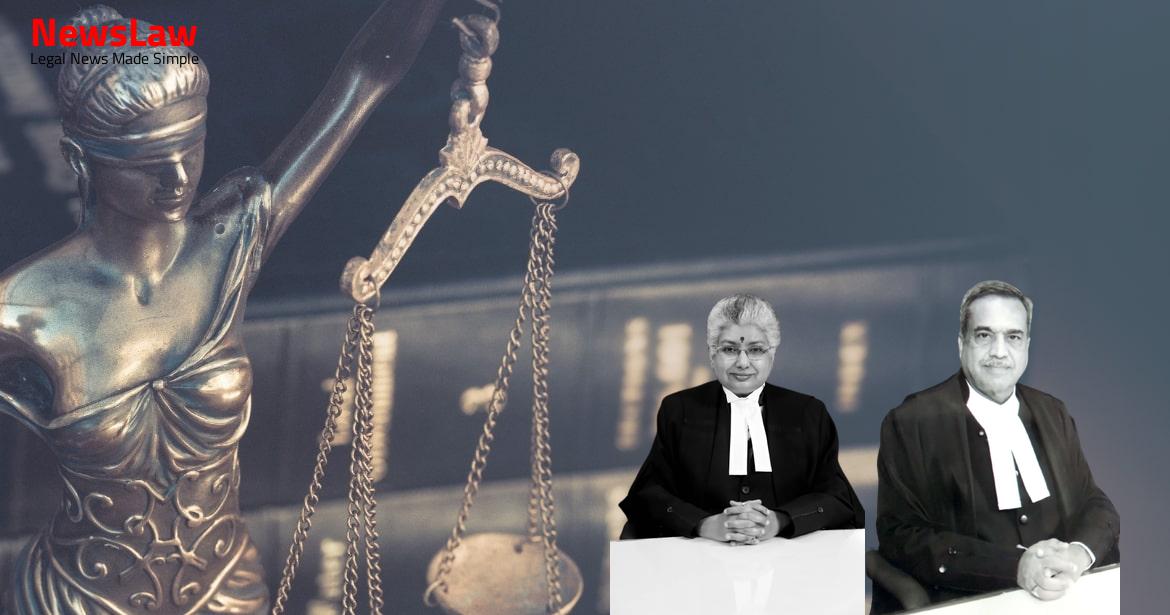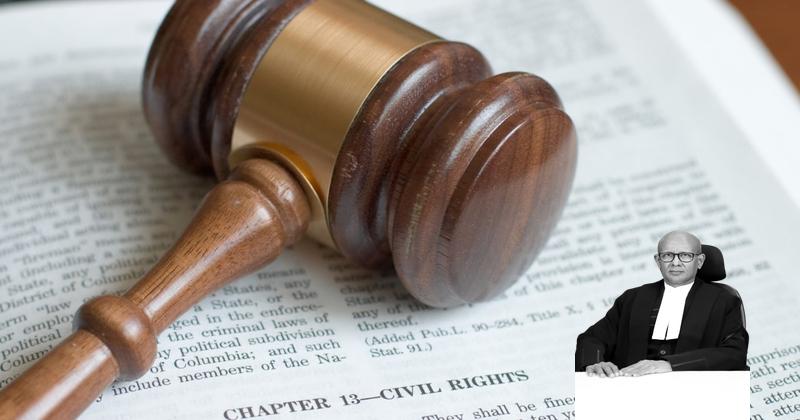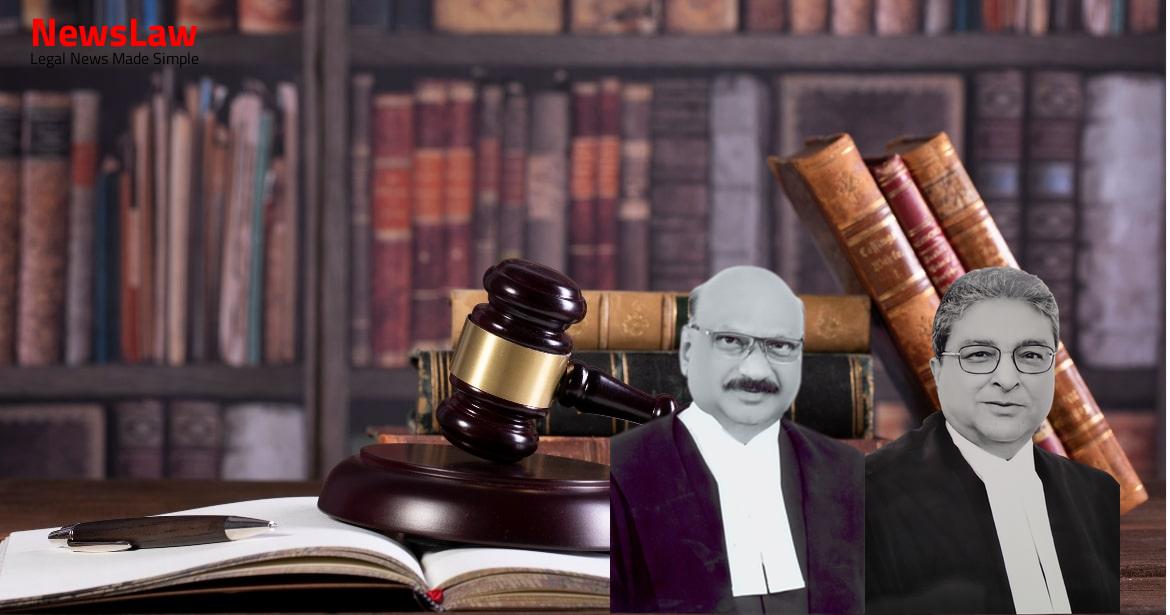Explore the nuances of the legal analysis conducted by the High Court in a recent case involving the application of the Gangsters Act. The court’s detailed examination of the Act’s provisions and precedents sets a significant precedent for the prosecution of individuals accused of anti-social activities. Stay informed about the critical legal interpretations in this complex case.
Facts
- The appellant, Shraddha Gupta, is aggrieved by the order dated 27.09.2019 passed by the High Court of Judicature at Allahabad.
- The High Court order was in relation to Criminal Miscellaneous Writ Petition No 21964 of 2019.
- The appellant also challenges the subsequent order dated 10.11.2020 passed in Criminal Miscellaneous Review Application No 2/2019.
- An FIR has been filed against the appellant under Section 2/3 of the Uttar Pradesh Gangsters and Anti-Social Activities (Prevention) Act, 1986.
- The appellant has filed the present appeals against the mentioned orders.
- A case was registered against six accused persons under various sections of the IPC at P.S. Ujhani, District Badaun.
- A separate case under Sections 2/3 of the Gangsters Act, 1986 was registered against eight accused persons.
- The High Court dismissed a writ petition to quash the criminal proceedings under the Gangsters Act.
- Approval was granted to register a case against three persons under Sections 2/3 of the Gangsters Act.
- Supplementary charge sheets were filed against three accused persons in connection with the murder conspiracy.
- The incident involved a car ramming into a scooty, resulting in the death of Sadhna and injuries to Behari.
- The complainant alleged the involvement of a former BJP MLA in the conspiracy.
- A review application was filed and dismissed, leading to the preparation of a gang chart against the appellant and two other accused.
- The complainant reported the incident to the police after the death of her sister.
- Autopsy of the deceased was conducted, and a gang chart was prepared against the appellant and two other accused.
Also Read: Ruling on Circumstantial Evidence in Murder Case
Issue
- The main issue presented to the Court is whether a person facing a single FIR/charge sheet for anti-social activities listed in the Gangsters Act can be prosecuted under the Act.
Also Read: Challenging Legal Presumptions in Negotiable Instrument Cases
Arguments
- The appellant’s counsel argues that the appellant is not a habitual offender and does not engage in anti-social activities.
- The appellant challenges the dismissal of the writ petition and review application by the High Court.
- It is contended that being implicated under the Gangsters Act based on a single FIR for a single murder is unjust.
- The appellant denies being a ‘Gangster’ or a member of a ‘Gang’ as per the allegations.
- The appellant was implicated in the case through further investigation and supplementary charge sheet after eight others were already charged.
- The appellant’s legal representative relies on previous court decisions and arguments to support the appellant’s innocence.
- The appellant and two other accused are rightly charged for the offences under Sections 2/3 of the Gangsters Act, 1986, as members of the ‘Gang’.
- The main co-accused P.C. Sharma is identified as the Gang Leader, a dangerous criminal.
- The Gangsters Act was invoked after due procedure and approval by higher authorities following the preparation of a gang chart.
- All accused, including the appellant, were found to be involved in anti-social activities and conspiring to murder the deceased Sadhna Sharma for pecuniary gain.
- During further investigation, the appellant and two others were added as accused after their involvement surfaced.
- The appellant and other co-accused were required to be prosecuted under the Gangsters Act in line with the definitions of ‘Gang’ and ‘Gangster’.
- The State relies on precedents from the High Court of Allahabad supporting the prosecution of accused under the Gangsters Act even with a single FIR for anti-social activities.
- The gang, led by the main accused, was involved in organized criminal activities for pecuniary gain, including offenses related to the human body and murder.
Also Read: Legal Analysis Critique in High Court’s Quashing Order
Analysis
- The power under Section 3(1) of the Gujarat Police Act, 1951 cannot be exercised indiscriminately
- The power must be exercised in a reasonable and fair manner, consistent with the principles of natural justice
- The power to extern a person should be exercised in rare and exceptional cases
- The externment order must be based on sufficient material and reasons must be recorded
- The provisions of the statute are to be read and considered as they are.
- The settled legal position is that a single crime committed by a ‘Gangster’ can be sufficient to apply the Gangsters Act on members of a ‘Gang’.
- Co-accused were already charged/prosecuted under the Gangsters Act, so the appellant and other co-accused needed to be prosecuted for the same offences.
- The main accused, alleged to be a gang leader, hatched a criminal conspiracy to murder for pecuniary benefit due to a long-standing property dispute.
- There is no specific provision in the Gangsters Act, 1986 mandating multiple offences or FIRs/charge sheets for prosecution.
- Relevant provisions of the Gangsters Act, 1986 need to be referred to while considering the issues/questions in the case.
- The Gangsters Act, 1986 aims to prevent and cope with gangsters and anti-social activities.
- The Act defines ‘Gang’ and ‘Gangster’ in Sections 2(b) and 2(c) respectively.
- A ‘Gang’ is a group of persons committing crimes for undue advantage.
- Even a single crime by a ‘Gang’ can trigger the Gangsters Act for its members.
- A ‘Gangster’ is a member or organizer of a Gang involved in anti-social activities.
- Special Courts under the Act have precedence over other trials against accused.
- The Act allows prosecution for any anti-social activity mentioned in Section 2(b) of the Act even for a single offence/FIR/charge sheet.
- Special Courts can take cognizance of offences under the Act without the accused being committed for trial.
- The High Court was justified in refusing to quash the criminal proceedings against the appellant-accused under Sections 2/3 of the Gangsters Act, 1986
- The power under Section 482 Cr.P.C. was rightly not used to quash the proceedings
- The decision of the High Court is supported and agreed upon
Case Title: SHRADDHA GUPTA Vs. THE STATE OF UTTAR PRADESH (2022 INSC 481)
Case Number: Crl.A. No.-000569-000570 / 2022



